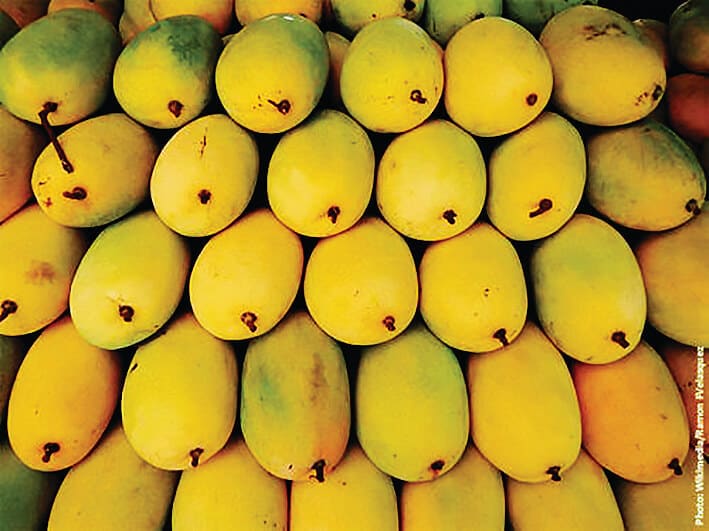With temperatures expected to increase in the upcoming days, there is a surge in the demand for mangoes in the capital region. However, this year, the market appears to be incapable of meeting the demands due to various factors such as unseasonal rainfall and severe weather conditions, as reported by the shopkeepers at the renowned Azadpur Mandi.
Even after a joyous harvest season for the farmers, the unexpected rains have led to a jump in costs and a noticeably reduced production this year. India is one of the top exporters of mangoes worldwide and also has the most diverse varieties.
Even on a regular workday at the bustling Azadpur fruit market, people were seen in long queues waiting to purchase fruits and vegetables. Trucks were being loaded and unloaded with boxes, while numerous labourers pulled their rickshaws loaded with 20-30 boxes at a time.
At first glance, this lively scene may give the impression of a thriving business. However, the traders have a different perspective on the situation.
“This year we have received around 20 per cent to 30 per cent less fruits and that’s the first time in the 42 years I’ve been working here,” says Shubhash Sahu.
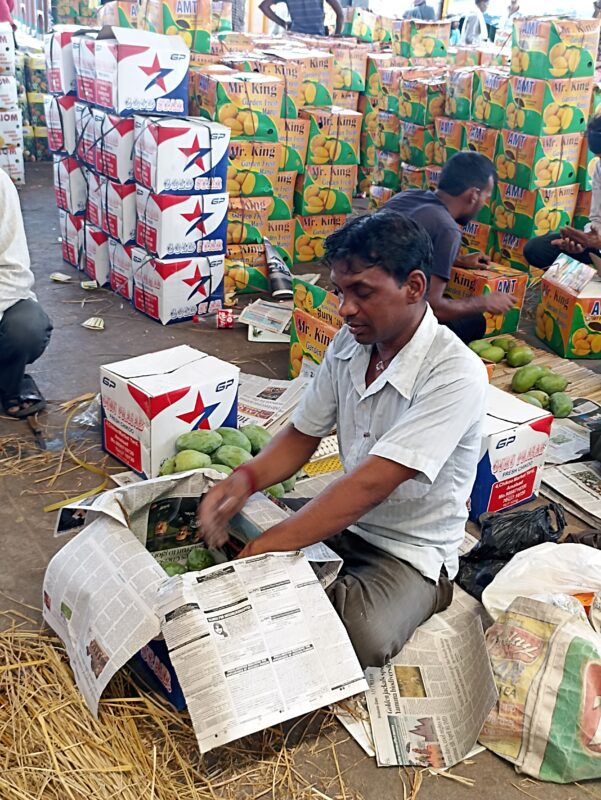
“I procure my stock from Gujarat and Uttar Pradesh and if I had procured only from Gujarat, I would have sufficient supply but my calculations failed.”
The expected earnings for this year are anticipated to be unsatisfactory, mirroring the situation from the previous year.
In the past, excessively high temperatures resulted in overripe mangoes that were unsuitable for the market.
This year, an abundance of untimely rainfall caused a delay of 15 days in the harvesting season, leading to the loss of numerous hermaphrodite flowers responsible for mango formation. The farmers also suffered significant losses during this season, as per a source.
According to Prakash Singh, a 53-year-old individual, “There is a noticeable reluctance among people in purchasing mangoes at the current prices. Many individuals are leaving empty-handed, claiming that the prices are excessively high.”
However, Singh explains that the farmers are the ones who determine the prices, and as intermediaries, they have limited control over the situation. If they go through the entire season without making significant profits, he questions the purpose of travelling all the way from Lucknow. Singh attributes destruction of their season to the adverse impact of rains.
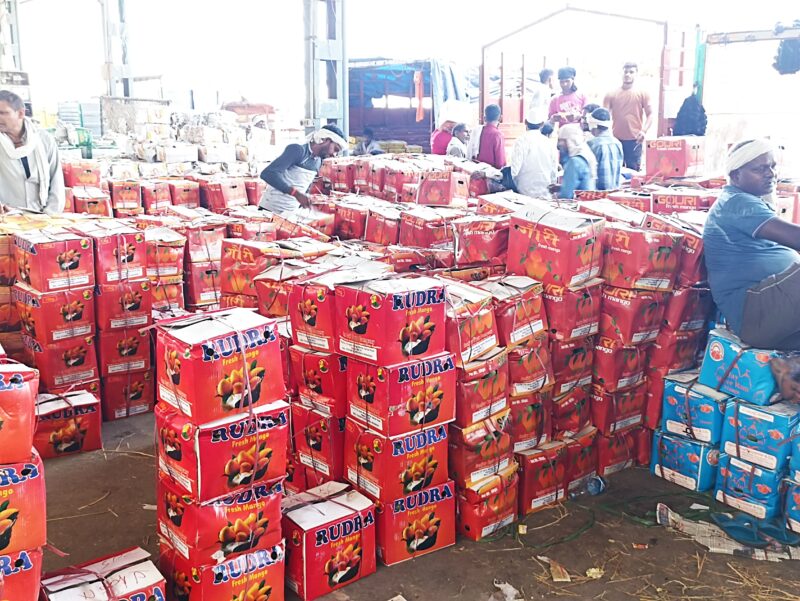
In the past, Langda and Dussehri mangoes were sold for 500 rupees per box. However, the current prices have increased, ranging from 650 to 700 rupees. Despite difficulties in selling, shopkeepers have reluctantly agreed to sell them at the inflated rates.
Subsequently, the main area where they are experiencing losses is with individual buyers, who used to purchase boxes for their friends and family.
According to Singh, they used to sell around 40 to 50 boxes per day to individual buyers. However, this number has dropped to 30 boxes now. Moreover, the profit margin on each box is minimal, leaving them with meagre earnings. Even this small profit seems to be diminishing rapidly.
Deputy secretary of the Agricultural Produce Marketing Committee, Pushkar, tells Patriot, “It’s evident that the turnout this year has been low, not just for mangoes. There are multiple crops that have been affected as well. There are very few things one can do against nature; we can handle distribution, but it’s really hard to keep a check on the quantity.
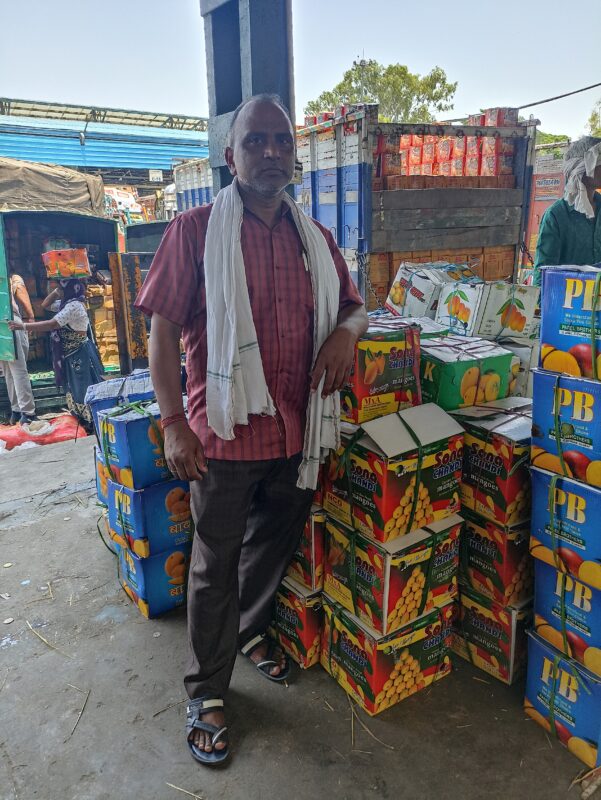
Pushkar added, “However, considering the possibility of untimely rains, we have created covered auction sheds so that the stored stocks don’t get ruined. We have covered a total area of 18 acres out of the 79.83 acres and are trying to cover more area to strengthen the situation for our traders.”
Shaukat, a wholesale fruit seller at the Okhla Mandi, said that the supply of mangoes is not meeting the demands in Delhi.
“Initially, we were buying directly from the suppliers in bulk and now many of us have reduced the quantity of mangoes because it is costing us a bomb. Rather, we stick to other summer seasonal fruits like melons and litchis, which too have suffered but still is in better state than mangoes,” he said.
A son of a farmer from Uttar Pradesh’s Malihabad, Shaukat said, “Unseasonal rain affects mango flowering in various ways, and fungal disease is the most common. Untimely showers also lead to diseases in fruits.”
Meanwhile, Jagat Babu, a fruit seller at the Okhla Mandi, has suffered a loss of Rs 17,000 since April as he was unable to sell his stock of mangoes at the price he bought.
“Leave profit, I had to bring down the price of mangoes by 30% because people were not buying at the price I bought. I suffered a lot of losses but I had to clear the stock,” he said.
“We (fruit sellers) had expected mango produce to be three times better than the previous year. Last minute rain is usually good for mango cultivation but this time, due to the thunderstorm, the produce in north India has been adversely affected, which is why the prices are high,” he added.
The scenes at the Ghazipur mandi weren’t any different, as the traders were disappointed.
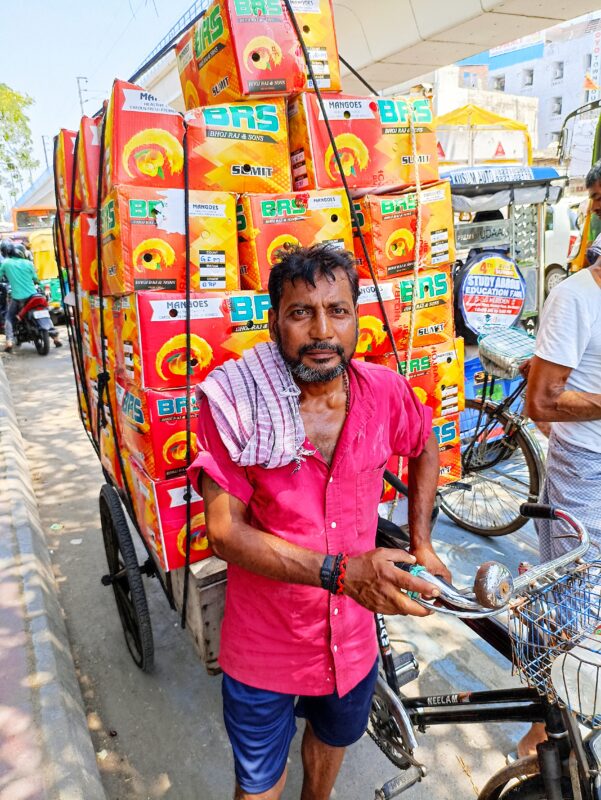
Raju Ratan Singh says the market is not picking up right now.
“The turnout is low, and we’ve received relatively lower quantities.”
He goes on to say that this has been the case in the last few years.
“There hasn’t been a substantial outcome, and I’m thinking I’m going to switch to selling apples, so hopefully there will be better returns.”
The traders are not the only ones affected by the untimely rains. The rickshaw-pullers are also the ones who are facing losses.
Sagar, 45, a native from Saharsa, Bihar, says, “I am going to incur a loss of Rs 5,000-6,000 this season because there’s less work. Sometimes, it rains suddenly while carrying the boxes of mangoes, and when all the boxes get damaged, we have to pay for it.”

